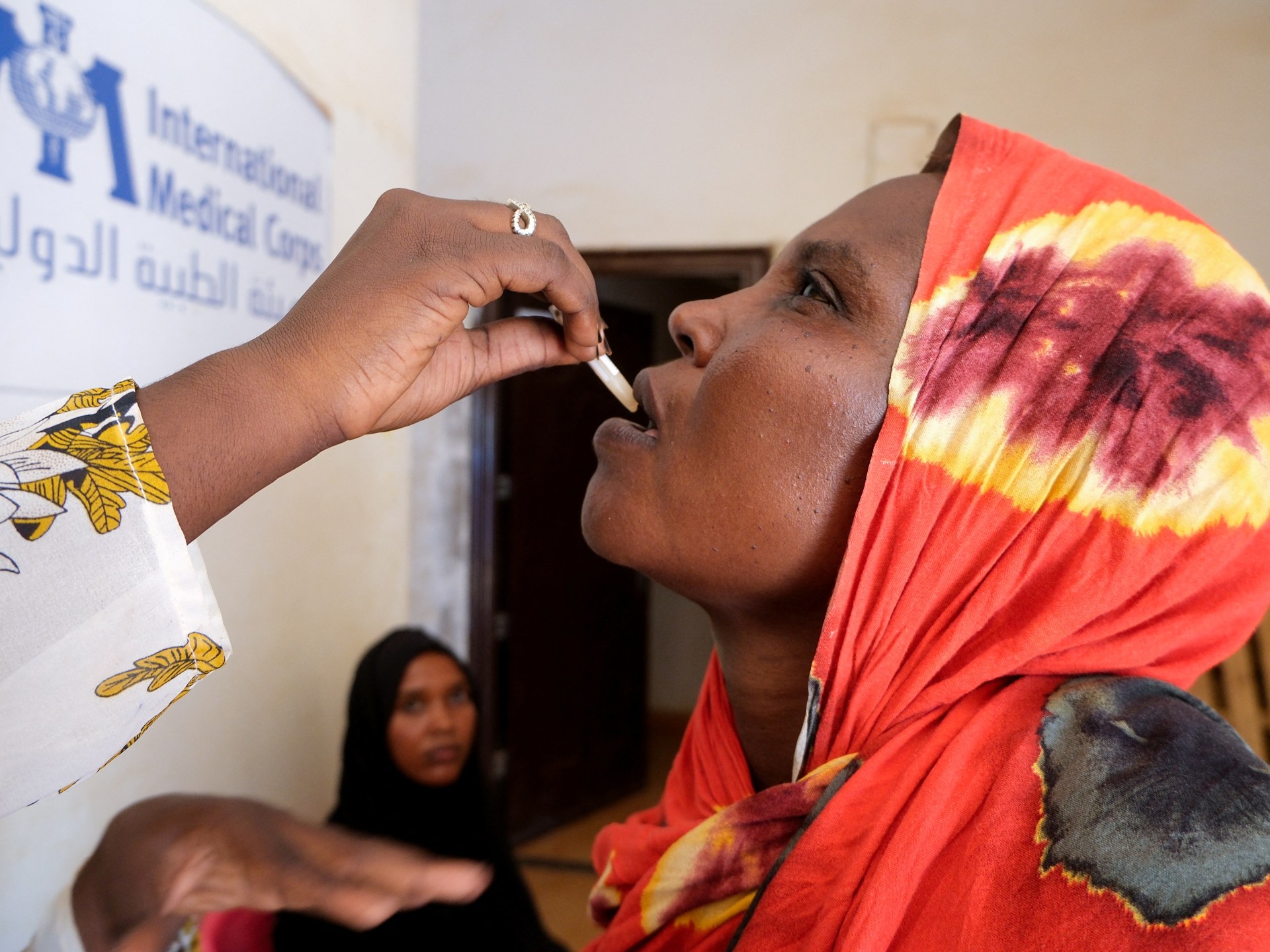The Africa CDC said it has recorded nearly 300,000 confirmed and suspected cases of cholera so far in 2025, an increase from last year.
Africa is experiencing its worst cholera outbreak in 25 years, according to African medical officials, with renewed increases in Angola and Burundi.
On Thursday, the African Union’s public health agency, the Africa Centers for Disease Control and Prevention (CDC), said it had recorded nearly 300,000 confirmed and suspected cases of cholera so far in 2025. Additionally, more than 7,000 deaths have been reported.
Recommended stories
3 List of itemsEnd of list
The figures represent an increase of more than 30 per cent over the total number of cases reported last year, which was 254,075.
“Cholera is still a major problem,” Africa CDC director-general Jean Kaseya told a news conference on Thursday. “It’s like every year we have more and more cases.”
Kaseya told reporters that two countries in particular showed an increase, indicating an active spread of the infection: Angola and Burundi.
Angola has reported at least 33,563 total cases of cholera so far in 2025, resulting in 866 deaths, and Burundi has reported at least 2,380 cases, resulting in 10 deaths.
Cholera is a bacterial disease spread when people drink contaminated water or come into contact with water from open wounds. In some cases, eating raw shellfish can lead to infection.
It cannot be transmitted from one person to another, so casual contact with a person with the disease is not a risk.
The disease causes severe diarrhea and dehydration. If left untreated, cholera can kill within hours – even in previously healthy people.
The Africa CDC blamed the rise of the disease on the lack of safe water and conflicts on the continent.
“As you know, without water, you can’t really control the eruption,” Kaseya said Thursday.
Even in countries with a slight decline in cholera cases, Kaseya encouraged health officials to address underlying causes, including overcrowding and poor sanitation in refugee camps.
“Insecurity, displacement of our population – all these things are not helping apart from the lack of wash commodities,” he said.
By AugustCholera has killed at least 40 people in Sudan’s Darfur region, with local refugee camps particularly hard hit.
The medical charity Doctors Without Borders, known by its French initials MSF, described the situation in the country as Worst outbreak in years.
The war in Sudan has caused extensive damage and destruction to the country’s civil infrastructure, including sewage and water treatment works, and many places, including the capital Khartoum, have turned into war zones.
“At the height of war everywhere, the people of Sudan are now experiencing the country’s worst cholera outbreak,” MSF said in a statement in August, quoted by the AFP news agency.
“In the Darfur region alone, MSF teams treated more than 2,300 patients and recorded 40 deaths last week.”
In total, at least 71,728 cases of cholera were reported in Sudan in 2025, causing 2,012 deaths, the Africa CDC said.
Cholera is not new to Sudan. In 2017, a previous outbreak killed at least 700 people and infected nearly 22,000 people in less than two months. In this most recent outbreak, Officials speculate The water supply was contaminated with cholera as flood water mixed with sewage.

